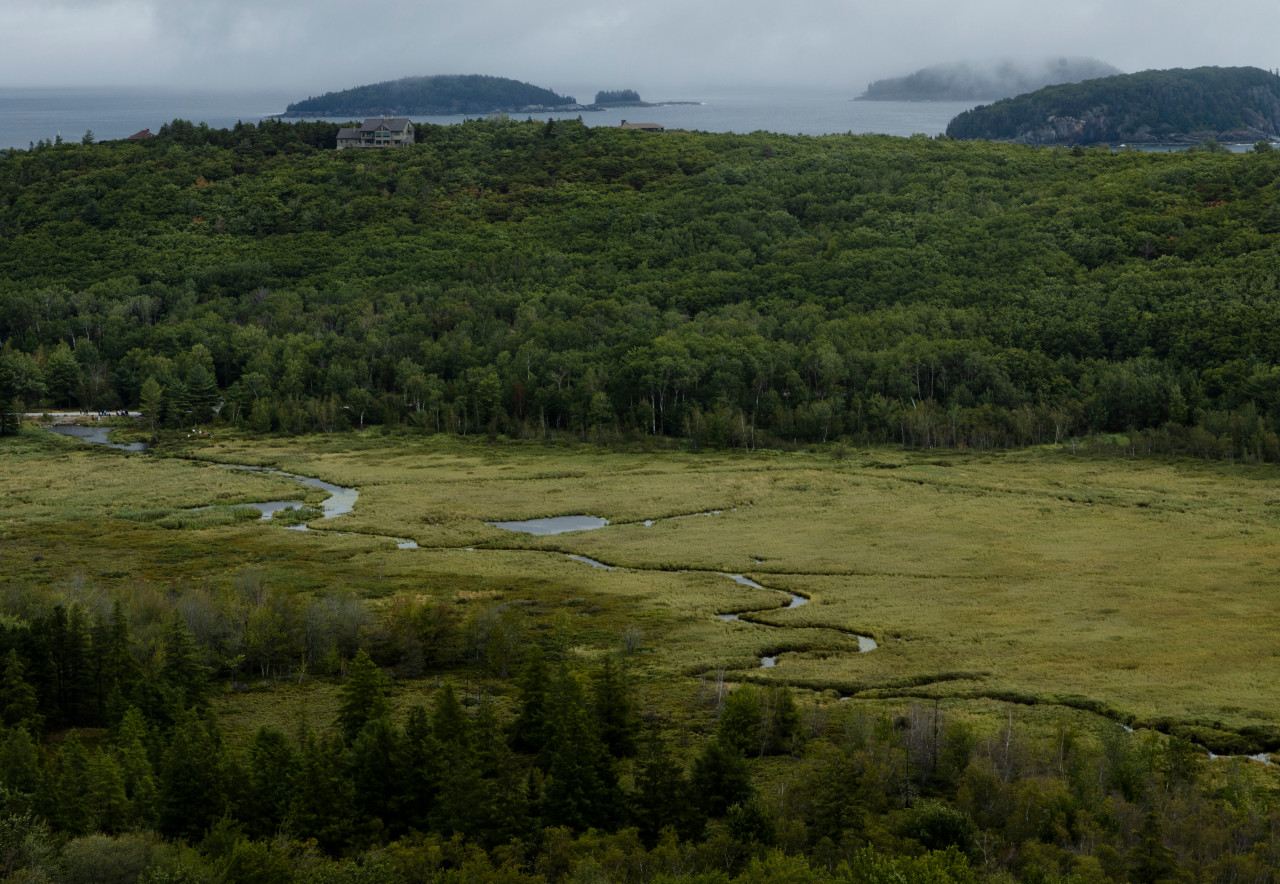Climate-smart Restoration in Great Meadow – via Wetland News
Acadia National Park’s Abe Miller-Rushing and Friends of Acadia’s Brian Henkel authored a story spotlighting Great Meadow and the resist-accept-direct (RAD) framework.
October 28th, 2022
Acadia National Park’s Abe Miller-Rushing and Friends of Acadia’s Brian Henkel authored a story spotlighting Great Meadow and the resist-accept-direct (RAD) framework.
October 28th, 2022

The Great Meadow in Acadia National Park. (Photo by Lily LaRegina/Friends of Acadia)
via Wetland News (view full newsletter)
Acadia National Park is changing. The park, located on the coast of Maine, protects a mosaic of diverse landscapes including a mix of ocean islands and peninsulas, glacially sculpted granite mountains, forests, marshes, meadows, lakes, and streams. These landscapes are measurably different than they were when the park was founded in 1916.
Acadia gets about six inches more precipitation each year than it did 100 years ago, and more of that precipitation falls in extreme weather events. One of every six plant species found in the park in the late 1800s no longer occurs there. Many animals have been lost too—moving to the north—while others have arrived from the south.
At the same time, visitation to the park has skyrocketed from 2.4 million visits in 2011 to more than 4 million visits in 2021.
These rapid changes challenge national park managers. Historically, park managers focused on maintaining the park to past conditions—to restore things to the way they were. Now managers must learn how to manage for change—working to keep park ecosystems healthy as they change quickly.
We are working together with a mix of park managers, scientists, partners, and stakeholders to pilot a new approach to climate-smart restoration in Acadia National Park. This new RAD management approach requires choosing when and where to:
Resist environmental change attempting to preserve habitats and cultural resources at all costs;
Accept change by allowing plant and animal populations to expand, contract, or shift, and by accommodating the impacts of changing weather and storms on infrastructure or cultural assets;
Direct changes by adapting habitats and species and infrastructure through anticipated radical change.
Read about how this climate-smart management process works in a key project, the Great Meadow Restoration, Acadia’s second largest freshwater wetland: Full story in Wetland News